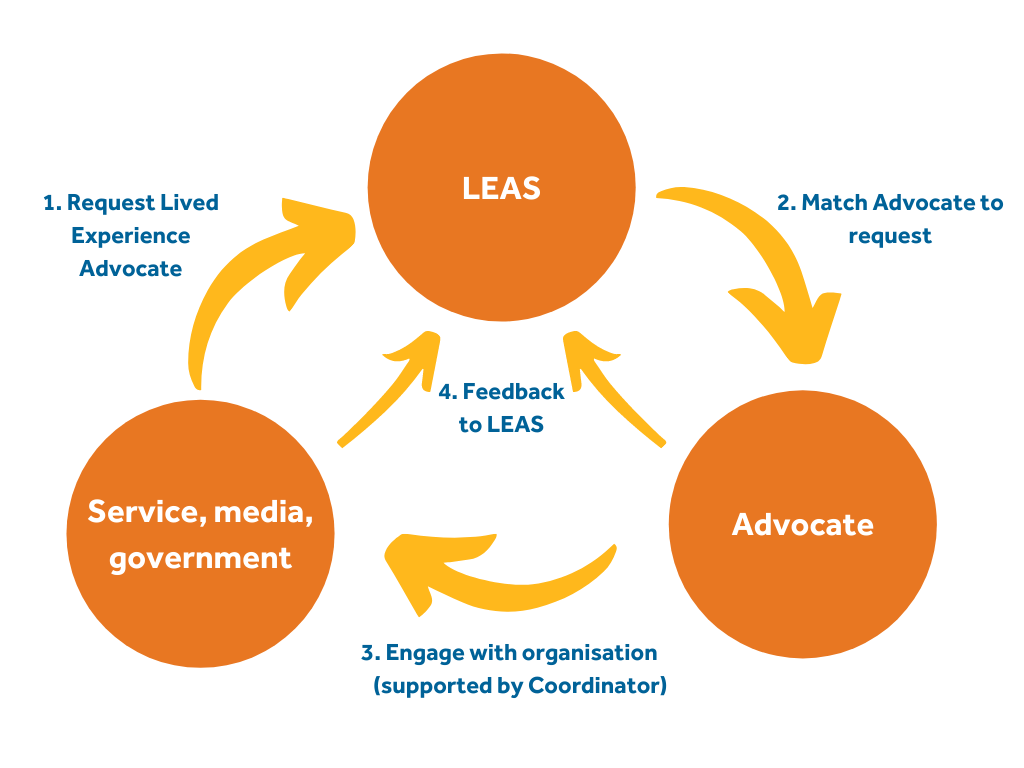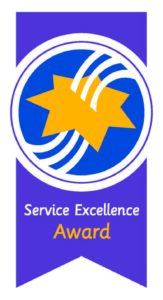What is the Lived Experience Advocate Service?
ATDC’s Lived Experience Advocate Service (LEAS) gives people who have a lived experience of alcohol and other drug use the chance to have a say in how alcohol and other drug services are delivered.
It also gives service providers, the media and other community and government groups the chance to draw on the expertise of people with lived experience.
The LEAS is supported by Tasmanian Government funding.
What is a Lived Experience Advocate?
A Lived Experience Advocate is someone who has lived experience of alcohol, tobacco and other drugs (ATOD)services. They may use or have used alcohol or drugs themselves, or they may be a family member, friend or carer of someone who does.
A Lived Experience Advocate (‘LEA’) is someone who volunteers to speak about their own experience, as well as speaking and acting as an authentic representative from the community of people who use alcohol, tobacco and other drugs and ATOD services.
ATOD services can include therapy and counselling, drug education, crisis services, and help dealing with the legal system. People who use these services may be called ‘consumers’, although the preferred term after consultation with the LEAs is ‘people with a lived experience of ATOD use’.
An LEA uses their personal experience to speak up for people who engage with or attend various ATOD services.
This means:
- speak up for people with a lived experience of ATOD use, both those who have accessed or are accessing treatment, and those who do not.
- taking this information back to various organisations, including media, government, and ATOD service providers so they can have a meaningful influence on the way these organisations operate and behave towards people who use ATODs.
Who can be a Lived Experience Advocate?
Anyone with lived experience of ATOD use. You may also have experience with treatment services. Close supports like family, friends, and carers can also an LEA
What does a Lived Experience Advocate do?
An LEA can use their lived experience and the experience of other people of ATOD use and treatment to give providers feedback and advice on the full range of ATOD services.
It’s a bit like an airline passenger being invited to talk about their flight. That passenger is the best person to describe their experience from check-in to arrival. This might include how comfortable the seat was, how safe they felt, what they thought of the meal and—perhaps most importantly—how the staff treated them during the journey. In the same way, people with lived experience of ATODs can describe how they felt, or are feeling, about their journey with ATOD services. This might include things like how they feel about walking into their local pharmacy for their pharmacotherapy program; how their best friend with a dependence on alcohol has struggled to find the right rehab program; what it’s like caring for a child with a dependence; or even what drug trends they’re seeing on the streets.
An LEA has the chance to make a real difference with ATOD services and the way they are delivered. LEAs are invited to work with ATOD services and committees, talk about their personal experiences and represent the wider community of people with a lived experience of ATOD use and treatment. Being an LEA doesn’t just mean being a focus for people’s complaints—the ATDC already has a process for that. An LEA plays an important part in talking about how people with a lived experience of ATOD use and treatment feel about their services.
How are Lived Experience Advocates supported?
The ATDC and the Lived Experience Advocate Service seeks to support volunteer LEAs by:
- offering a fixed recognition payment for their time and experience, called an ‘honorarium’.
- providing introductory and accredited training, when available.
- resourcing a part-time operational support in the form of the ATDC’s Lived Experience Advocate Service Coordinator.
- investing in training to build the capacity of the LEAS and volunteers to have the skills to undertake advocate activities.
Kyle Perry
Lived Experience Advocate Service Coord.
A generous, positive and friendly human, the more serious elements of Kyle’s social justice warrior persona aren’t easy to pick on first greeting. But his passion for social justice quickly becomes evident through his deeply thoughtful and captivating conversation.Read more✖Kyle Perry
His teammates describe him as a creative and inspiring visionary, but also value his playful and fun attitude. His mastery of words and delight in using them well also makes Kyle a loved member of the team. Kyle’s experiences in both volunteer and paid work have brought a kaleidoscope of perspectives to his current role, and the addition of his academic success makes a recipe for success when working with his team and clients. When Kyle isn’t supporting the Lived Experience Advocate Service, you might find him promoting his bestselling novel The Bluffs (2020, Penguin Random House Australia.) Kyle holds a Bachelor of Counselling (Coaching) and he hopes to see a world where some of the major causes of crime – i.e., lack of education, safety, and housing – are acknowledged as a responsibility of the whole community to work to improve, and so see crime rates truly drop. Career highlights:
- Being recipient of the 2021 Tasmanian Minister’s ATOD Sector Emerging Leader Award
- Three months of mission work in Mozambique
- Breakout bestselling novel The Bluffs, 2020, Penguin Random House Australia
Potential advocates
Organisations/services
Current LEAs
Contact the Lived Experience Advocate Service
You can get in touch with the Lived Experience Advocate Service using the form on this page, phone 03 6231 5002 or email leas@atdc.org.au.
Information sent through the contact form on this page will be forwarded to the LEAS Coordinator, and any personal information received will be managed as described in our privacy policy.




